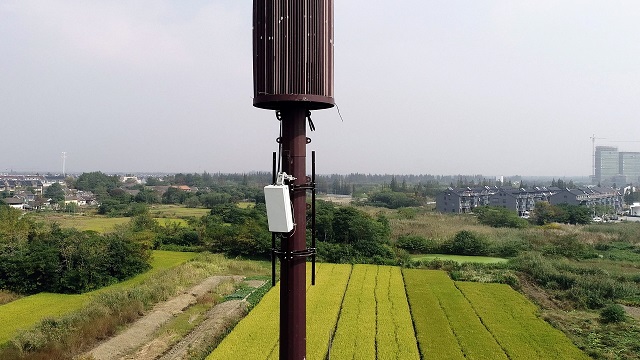The latest TrendForce report indicates that Huawei will overtake Ericsson in the global 5G base station market in 2020.
 Ericsson, the present market leader, will have 26.5 percent share in 5G base station market this year as compared with 30 percent in 2019.
Ericsson, the present market leader, will have 26.5 percent share in 5G base station market this year as compared with 30 percent in 2019.
Huawei’s 5G base station market share will increase to 28.5 percent in 2020 as against 27.5 percent in 2019, TrendForce said.
Nokia will also shed 5G base station market share. Nokia will have 22 percent share in 5G base station market share in 2020 as compared with 24.5 percent share in 2019.
Samsung will increase its 5G base station market share to 8.5 percent from 6.5 percent last year, the report said.
ZTE will also face challenges in the 5G base station market. ZTE’s 5G base station market share will decrease to 5 percent from 6.5 percent.
5G in Asia Pacific
Ninety-five operators across 31 countries in the Asia Pacific region are investing in 5G networks, reflecting 57.5 percent of the region’s mobile operators, according to GSA.
Twenty-four operators across 12 Asia-Pacific countries/territories have launched 5G services. In addition there have been two soft launches by Docomo Pacific in the Northern Marina Islands and MegaFon in Tajikistan.
The number of active 5G networks has more than doubled in 2020. There were 11 launches in the first half of 2020, with a further 3 operators launching in July 2020 in Taiwan.
There are currently 69 other operators across 19 countries/territories investing in 5G networks (including testing/trialling and deploying).
China is the most aggressive in developing 5G networks, with more than 400 5G-related innovative applications in transportation, logistics, manufacturing, and healthcare, says TrendForce.
Total 5G base stations in China are projected to exceed 600,000 in 2020, TrendForce research vice president Kelly Hsieh said.
Chinese and European equipment manufacturers captured more than 85 percent market share in the global mobile base station industry in 2019, with Sweden-based Ericsson, China-based Huawei, and Finland-based Nokia as the three largest suppliers.
Due to the U.S.-China trade war and the export controls issued by the U.S. government, Huawei was unable to procure key components from U.S.-based RF-front end manufacturers. Huawei is expected to focus its base station construction this year primarily in domestic China.
China Mobile, China Unicom and China Telecom built more than 250,000 5G base stations in China. This number is projected to reach 600,000 by the end of this year, with network coverage in prefecture-level cities in China.
Samsung has seen a surge in its base station thanks to 5G commercialization efforts in Korea. Samsung has provided base stations for the three major mobile network operators in Korea, including SKT, KT, and LG Uplus.
Samsung has collaborated with US operators such as AT&T, Sprint, and Verizon. The British government is targeting Japan-based NEC and Fujitsu as replacement suppliers of 5G equipment.
European and American governments alike have implemented sanctions against Huawei. Japanese equipment suppliers have the opportunity to raise their market shares in Europe and the US.
